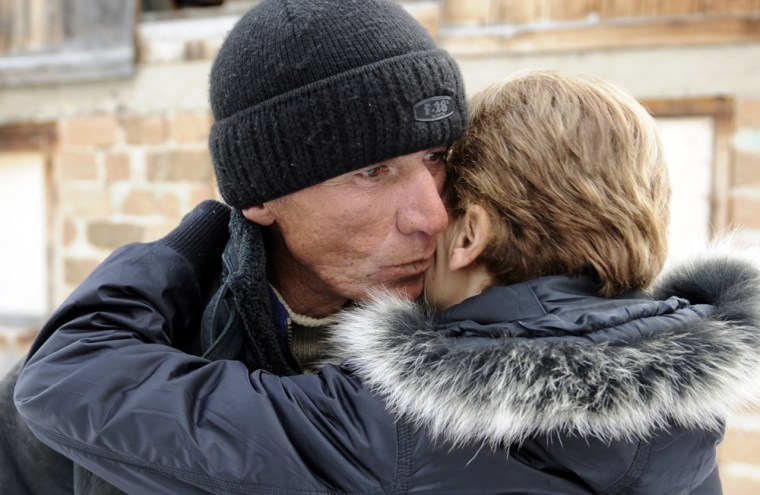The luger killed in Olympic training on Friday was "scared" of the lightning-quick track, his father told NBC News.
The body of Georgian athlete Nodar Kumaritashvili was due to begin the journey home on Monday.
His father, David, a Soviet-era luger himself, said that his son called him three days before his death and said he was terrified by at least one section of the Whistler track, considered the fastest in the world.
Speaking from his home in Bakuriani, Georgia, the athlete's father told NBC that he was worried about his son but didn't ask him to withdraw from the event.
"Nodar said, 'It feels like my head comes off on that turn, I'm scared," his dad said. "As an experienced athlete, I said to him, 'Son, go slowly — don't go fast'.
"(He said), 'No, father, I can't. I have come here to try my hardest.'"
'Not built correctly'
The luger's father said his son told him he should be "ashamed" for suggesting that the 21-year-old shouldn't try his best at the Olympics.
Kumaritashvili's dad added that he felt the track "was not built correctly" but said that his son "also made a little mistake."
NBC News reported that vigils were being held nightly in Bukuriani, a small ski resort about 110 miles from Tbilisi, the capital of the former Soviet republic.
Kumaritashvili's 18-year-old sister and mother were "inconsolable" and haven't eaten since Friday, NBC News reported.
Flowers and memorial messages also piled up at the athletes' village in Whistler, not far from where Kumaritashvili died on the first day of an Olympics that now seems destined to bear the scar of the accident.
Kumaritashvili was traveling at nearly 90 mph when he flew off the icy course Friday and into a steel pole during a training run. To make sure the sleds ran slower during competition, the run was shortened for both men and women.
Germany's Felix Loch took the gold medal after speeding safely through the final curve that took the young Georgian's life. Teammate David Moeller claimed silver, Italy's Armin Zoeggler bronze.
Criticism
The International Olympic Committee and luge officials took sharp criticism for blaming the accident on Kumaritashvili's failure to make tactical corrections during his run, and for saying they were changing the course not to make it safer but to soothe the emotions of the athletes.
A private memorial service, attended by several Georgian athletes and team officials as well as international and Vancouver organizers, was held for Kumaritashvili on Monday morning, The Associated Press reported. A brown casket was placed in a gray hearse and was driven away with a police escort of 14 motorcycles.
Kumaritashvili's body was to be leave Monday afternoon on a flight to Germany and will be flown to Georgia for arrival early Wednesday, a senior Olympic official said.
Kumaritashvili is to be buried in his hometown of Bukuriani.
The British Columbia Coroner's Service is investigating the crash. A spokesman for the Royal Canadian Mounted Police said investigators were done gathering evidence and witness accounts. Collision reconstruction experts also examined the scene.
IOC executive board member Gerhard Heiberg, a Norwegian who organized the 1994 Winter Games in Lillehammer, said it was too early to draw any long-term lessons from the crash.
"We have not discussed the consequences for later games at this stage," he said. "We will try to find out what happened, what can we do to prevent this. I will not speculate at this stage."
'Lasting legacy'
Meantime, Olympic officials tried to return the focus to competition.
"Under the somber circumstances, it can be difficult to celebrate," IOC spokesman Mark Adams said. "But it's a good Olympics."
Friday's opening ceremony was dedicated to Kumaritashvili, and in addition to making plans for the return of his body, Olympic organizers said they would consider how to pay tribute in the future.
"We're still working closely with the family," Adams said. "When the time is right, we will think about a more lasting legacy."
